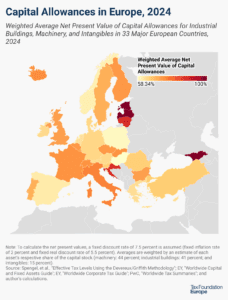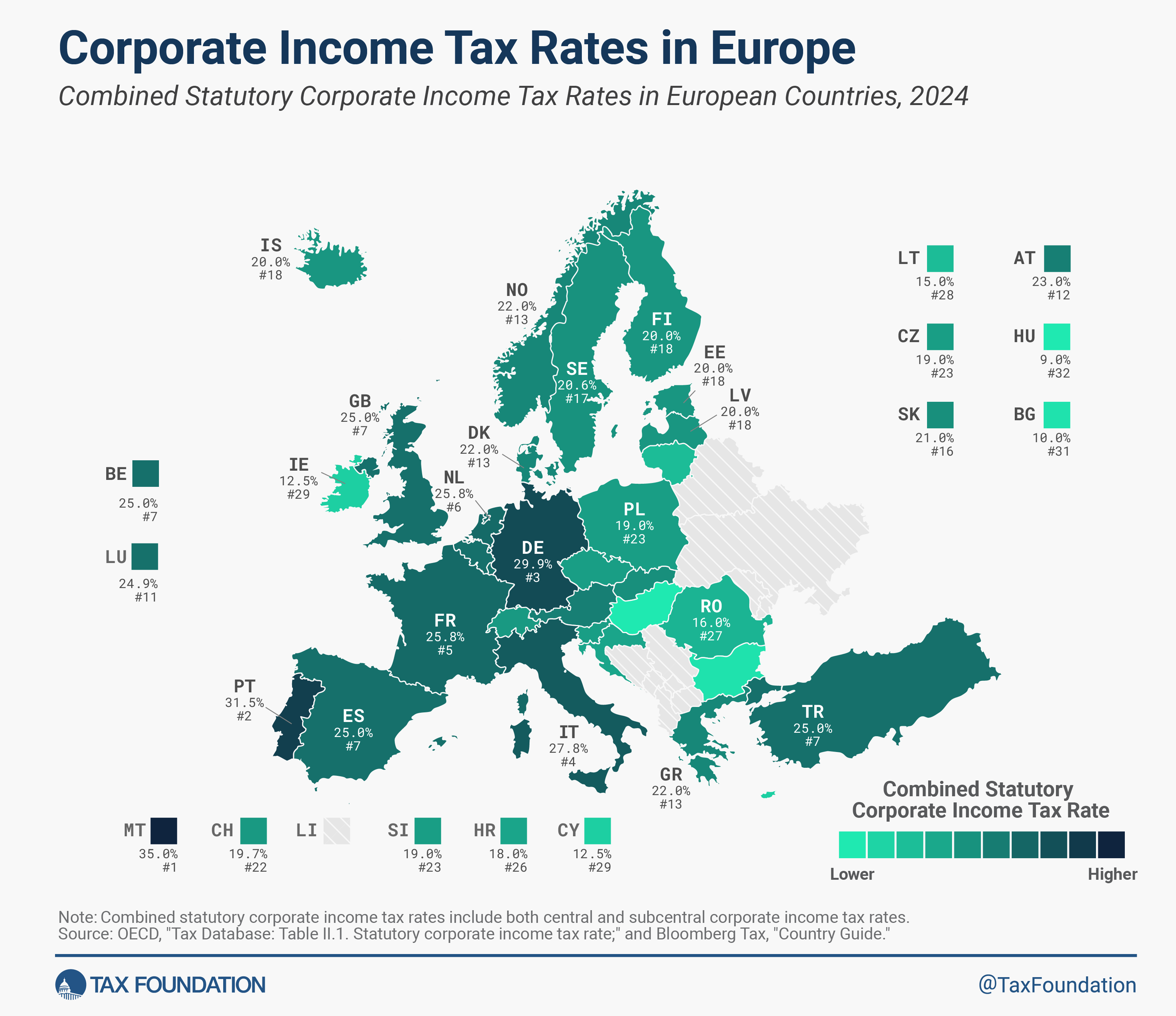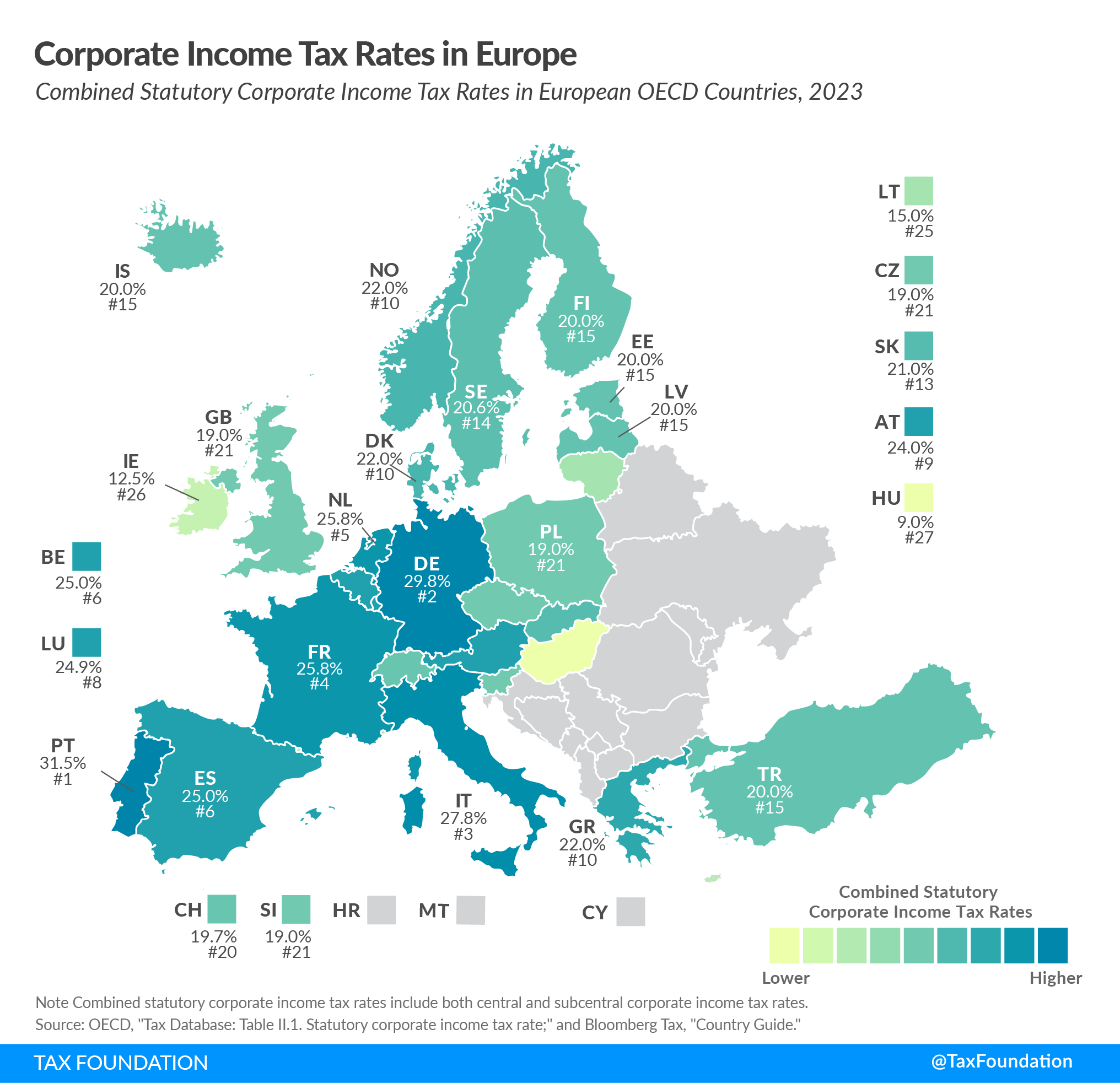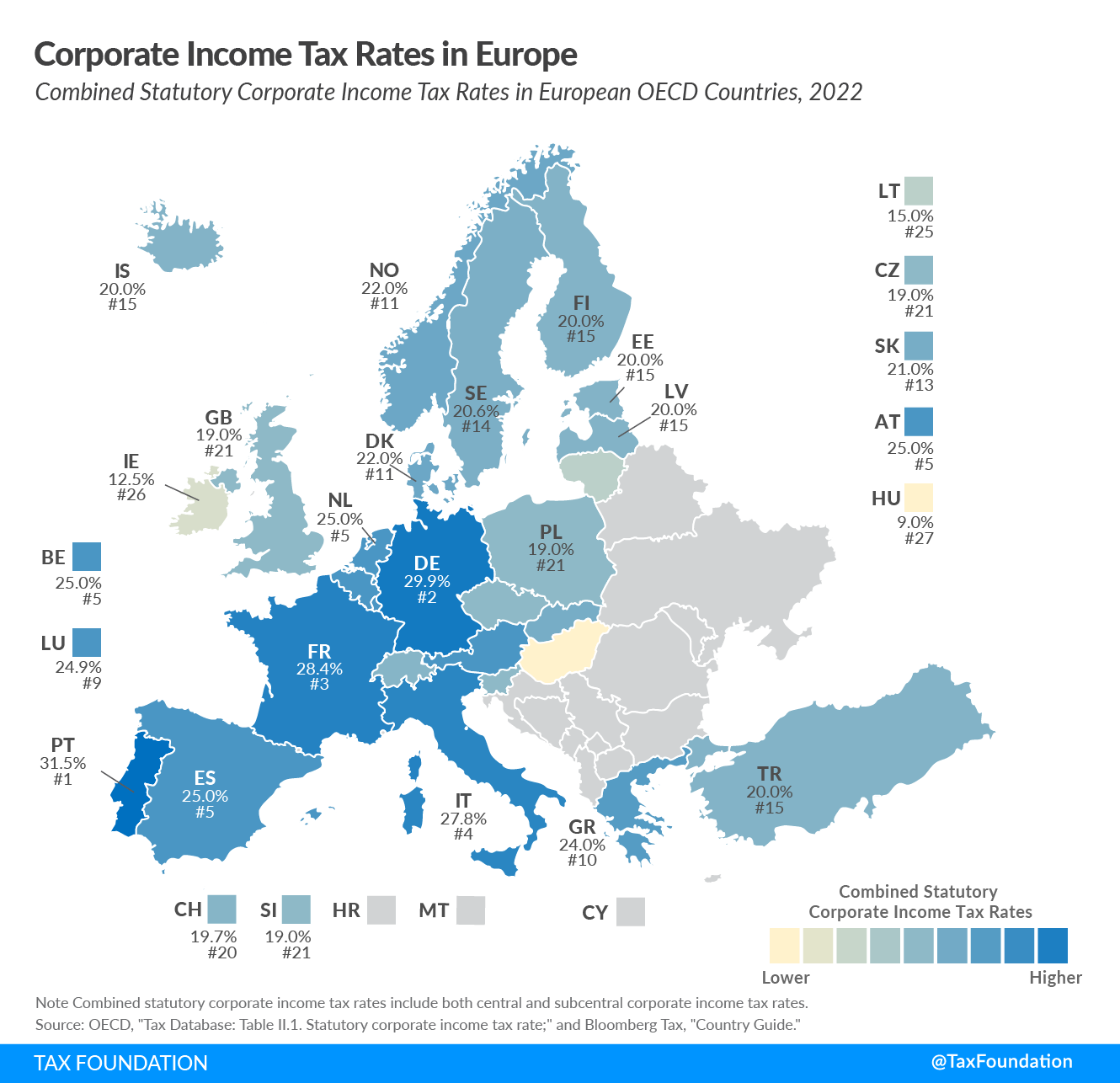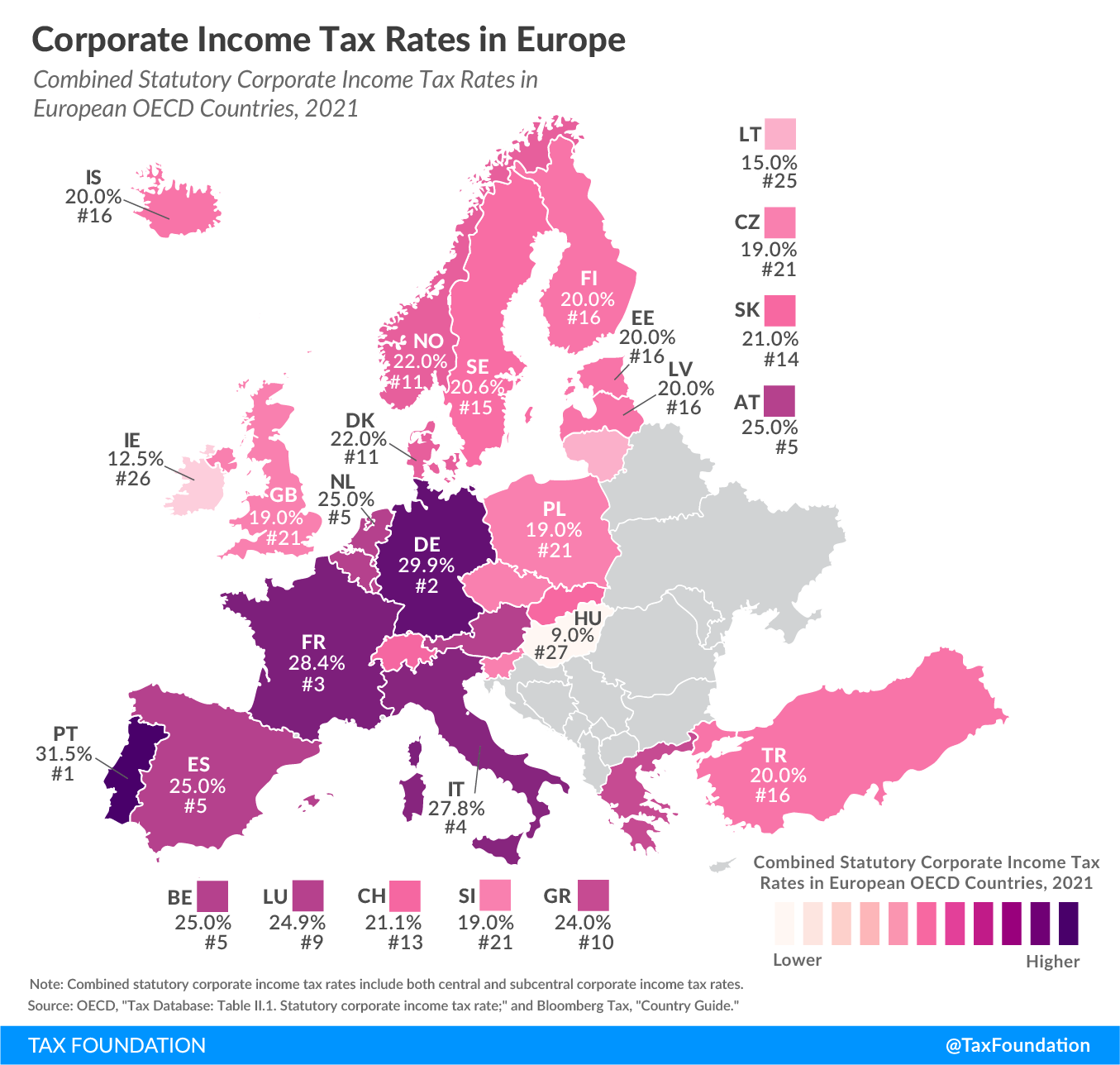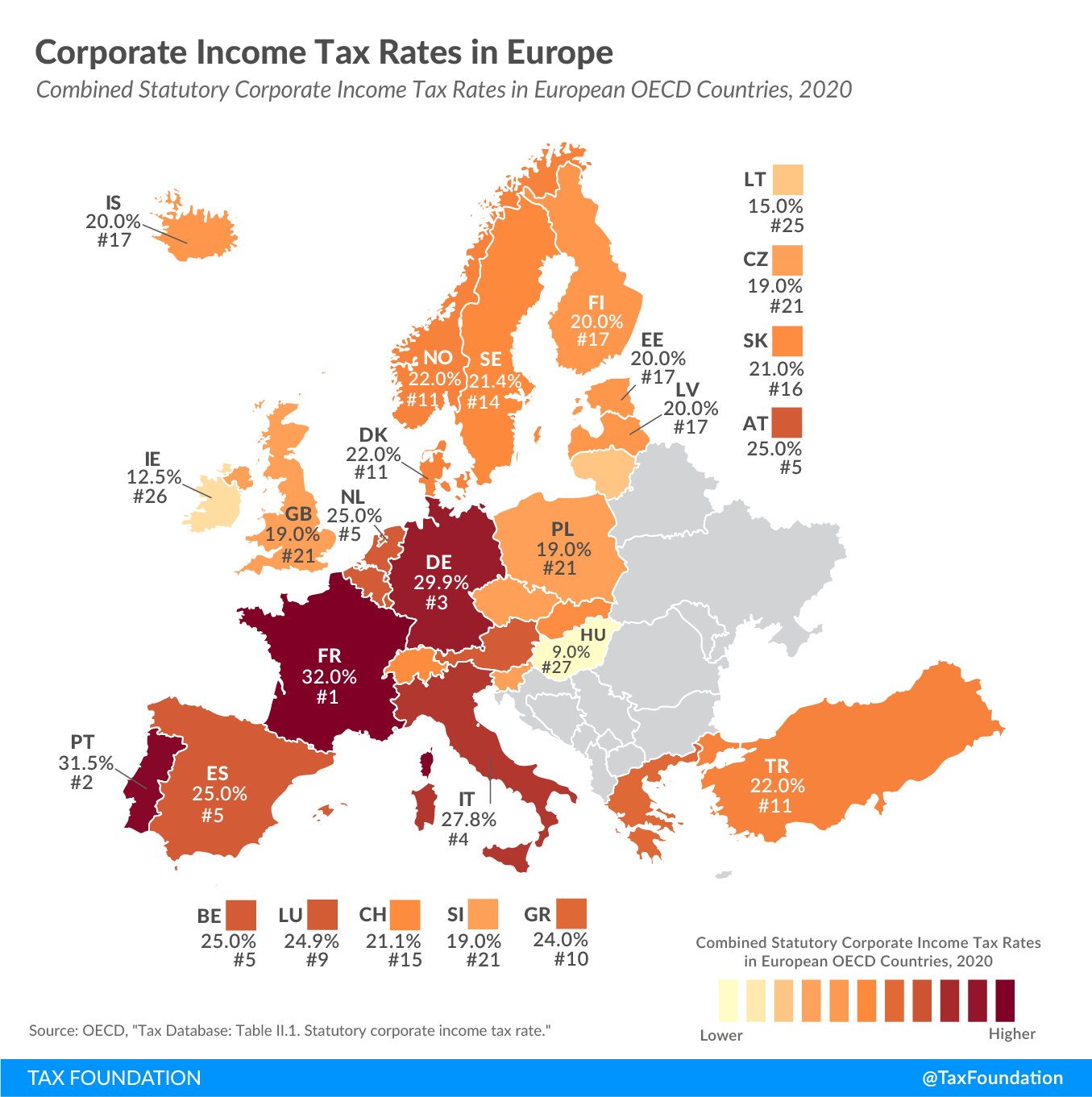
European countries—like almost all countries around the world—require businesses to pay corporate income taxes on their profits. The amount of taxes a business ultimately pays on its profits depends on both the corporate tax baseThe tax base is the total amount of income, property, assets, consumption, transactions, or other economic activity subject to taxation by a tax authority. A narrow tax base is non-neutral and inefficient. A broad tax base reduces tax administration costs and allows more revenue to be raised at lower rates. and the corporate taxA tax is a mandatory payment or charge collected by local, state, and national governments from individuals or businesses to cover the costs of general government services, goods, and activities. rate. Today’s map shows how statutory corporate income taxA corporate income tax (CIT) is levied by federal and state governments on business profits. Many companies are not subject to the CIT because they are taxed as pass-through businesses, with income reportable under the individual income tax. rates compare across European OECD and EU countries.
2025 Corporate Tax Rates in Europe
Combined Statutory Corporate Income Tax Rates in European OECD and EU Countries, 2025
| Country | Combined Statutory Corporate Income Tax Rate |
|---|---|
| Austria (AT) | 23.0% |
| Belgium (BE) | 25.0% |
| Bulgaria (BG) | 10.0% |
| Croatia (HR) | 18.0% |
| Cyprus (CY) | 12.5% |
| Czechia (CZ) | 21.0% |
| Denmark (DK) | 22.0% |
| Estonia (EE) | 22.0% |
| Finland (FI) | 20.0% |
| France (FR) | 25.8% |
| Germany (DE) | 29.9% |
| Greece (GR) | 22.0% |
| Hungary (HU) | 9.0% |
| Iceland (IS) | 21.0% |
| Ireland (IE) | 12.5% |
| Italy (IT) | 27.8% |
| Latvia (LV) | 20.0% |
| Lithuania (LT) | 16.0% |
| Luxembourg (LU) | 24.9% |
| Malta (MT) | 35.0% |
| Netherlands (NL) | 25.8% |
| Norway (NO) | 22.0% |
| Poland (PL) | 19.0% |
| Portugal (PT) | 30.5% |
| Romania (RO) | 16.0% |
| Slovakia (SK) | 21.0% |
| Slovenia (SI) | 22.0% |
| Spain (ES) | 25.0% |
| Sweden (SE) | 20.6% |
| Switzerland (CH) | 19.6% |
| Turkey (TR) | 25.0% |
| United Kingdom (GB) | 25.0% |
| Average | 21.5% |
| United States (for comparison) | 25.6% |
Source: OECD, "Corporate income tax statutory and targeted small business rates"; and PwC, “Worldwide Tax Summaries – Corporate Taxes.”
Taking into account central and subcentral taxes, Malta has the highest statutory corporate income tax rate, at 35 percent. Portugal, Germany, and Italy follow, at 30.5 percent, 29.9 percent, and 27.8 percent, respectively. Hungary (9 percent), Bulgaria (10 percent), Cyprus (12.5 percent), and Ireland (12.5 percent) have the lowest corporate income tax rates.
On average, the European countries analyzed currently levy a corporate income tax rate of 21.5 percent. This is slightly below the worldwide average which, measured across 181 jurisdictions, was 23.5 percent in 2024. In comparison, the United States levies an average corporate income tax rate of 25.6 percent.
Like most regions around the world, European countries have experienced a decline in corporate income tax rates over the past four decades, but the average corporate income tax rate has leveled off in recent years.
Notable 2025 Changes
Over the past year, some countries have raised their statutory corporate rates, including Czechia (from 19 to 21 percent), Estonia (from 20 to 22 percent, effective from January 2025), Iceland (from 20 to 21 percent), Lithuania (from 15 to 16 percent, effective from January 2025), and Slovenia (from 19 to 22 percent). Portugal has decreased its corporate rate from 31.5 to 30.5 percent.
Stay informed on the tax policies impacting you.
Subscribe to get insights from our trusted experts delivered straight to your inbox.
Subscribe
